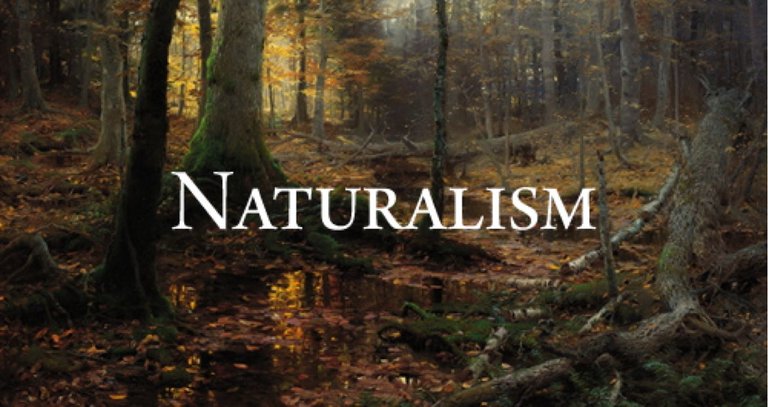
Through human history, many brilliant men and women has faced the question of what It’s the true of nature of existence. In many unsuccessful attempts to answer this question, many doctrines and philosophical postures has been raised. But with the unprecedented success of the natural sciences we can now have a better understanding of our surroundings, and stare in wonder how it makes so accurate predictions about reality in every single aspect of it. And you may ask: What is the reason for this unparalleled predictive capability of the scientific method and science in general?
So what’s Naturalism? You may ask:
In philosophy, naturalism is the "idea or belief that only natural (as opposed to supernatural or spiritual) laws and forces operate in the world."Adherents of naturalism (i.e., naturalists) assert that natural laws are the rules that govern the structure and behavior of the natural universe, that the changing universe at every stage is a product of these laws.
So let’s talk more about these called “Natural laws". These natural laws have been the study of the natural sciences for millennia. Once called “Natural Philosophy”, was the precursor of modern science, and it evolved to what you know nowadays.
So let's also dive in what a natural science is:
Natural science is a branch of science concerned with the description, prediction, and understanding of natural phenomena, based on empirical evidence from observation and experimentation. Mechanisms such as peer review and repeatability of findings are used to try to ensure the validity of scientific advances. Natural science can be divided into two main branches: life science (or biological science) and physical science. Physical science is subdivided into branches, including physics, space science, chemistry, and Earth science. These branches of natural science may be further divided into more specialized branches (also known as fields).
Humanity's progress through naturalism
One Important thing to point is that all of this scientific method and understanding is based upon the assumption that reality is composed by physical and natural laws, That is, methodological naturalism. So why this approach to understanding reality has been so successful? you may ask, and this we can easily note just seeing around us. Every single technological advancement has been courtesy of this thing called “Science” and its naturalistic approach.
It is pretty obvious to this point that denying any knowledge used in the development of all that technology would be perverse or even idiotic in such case. And brings me to my next point: wouldn’t this naturalistic approach to understanding useful or accurate in an ontological sense? That is, in the philosophical study of the nature of reality. Because so far, no other approach to understanding has given us such fruits.
Enlightenment through reason
Of course, this kind of proposal has been very controversial, mostly in the eyes of followers of religions or supernatural followers. But as I said, none of those approaches has given us anything useful to make progresses like we have made. So why not give it a try when it's very probable that naturalism could give us the answers in this aspect too?
Not only that but also the fact that, if naturalism has been so useful in our technological improvements, in medicine for example, focusing all of our efforts in studying and expanding our knowledge in these areas would bring us even more improvements and would help us forge a better future. And that, if one thing has brought all of humanity together to a single goal or mission, it has been science and its naturalistic methodology.
References
Being A SteemStem Member